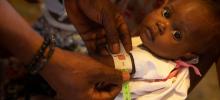Gangs Burn Down Hotel Oloffson, Host to Stars and Writers
On July 6, the Viv Ansanm gang burned down the historic Hotel Oloffson. Built in the late nineteenth century it survived coups, dictatorships, hurricanes, earthquakes, and economic collapse. Through it all, Hotel Oloffson was a beloved destination for journalists, artists, intellectuals, musicians, and peace corps volunteers. Many have fond memories here - walking up the front stairs to the terrace wondering who was already there, making new friends at the bar, listening/dancing to RAM on Thursdays. The memories are all that is left now although Richard Morse has committed to rebuilding when he is able to do so. May it rise from the ashes. The full article by Jacqueline Charles of the Miami Herald follows.









